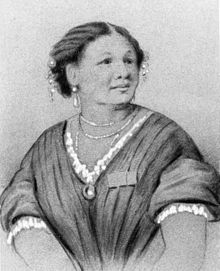Today we feature someone you may have heard of, as she was in the news recently when Michael Gove suggested removing her from the British syllabus. Fortunately there was a swift U-turn due to public outcry, and a Peggy Mitchell-esque screech of ‘over my dead body!’ from Nick Clegg. However being educated during the very politically incorrect Thatcher years I never learned of this wonderful lady until recently, and I imagine some of my peers are the same. So just to put everyone in the picture about this valiant woman, I am putting her in my own mini history book, just so we’re all in the know. And I expect your essay about her on my desk by Monday morning, or there will be detention.
Mary Seacole 1805-1836
After this she continued traveling and nursing through Central America and the Caribbean. When she heard of the outbreak of the Crimean war in 1853, she saw it as a challenge right up her street and set sail to Britain to volunteer. Despite bringing with her references and a CV that any Harley Street doctor would snap up today, Mary was not even granted an interview. She applied to charities and the war office but nobody would accept her...she realised that the racism she had encountered in the Americas had spread to Britain.
Not being one to back down or give us, Mary travelled to Crimea under her own steam anyway, handing out cards to advertise her services at the ‘British Hotel’ – in her own words "a mess-table and comfortable quarters for sick and convalescent officers”. During this time she applied to join Florence Nightingale’s team, but was rebuffed, with Nightingale even comparing the British Hotel to being ‘no better than a brothel.’- Saucer of milk for Miss Nightingale please.
That didn’t deter Mary and she kept the British Hotel open as a nursing home for wounded soldiers until the war ended in 1856. By now Mary was bankrupt, the hotel was unsellable and her debts needed to be paid. She returned to London and tried to make good, but to no avail. With help from her admirers and fans she raised enough money to return to Jamaica for a while, but she soon returned to Britain in 1870 when she heard of the Franco-Prussian war breaking out. However instead of returning to war she settled in society, becoming a personal massage therapist to the Prince of Wales and writing her book.
To achieve so much as a widowed, dual-heritage female in those times is a feat that is hard to comprehend. To travel so much and as an independent woman, and care for so many, I am glad she has managed to hang on in there in the British history books. Do read up more on her if you haven’t got any children to fill you in. Alternatively here’s a bit more info from the Horrible Histories crew who do history better than I ever could (the part of Mary Seacole possibly being played by Azalea Banks, but I can’t be sure in that mop cap).

No comments:
Post a Comment